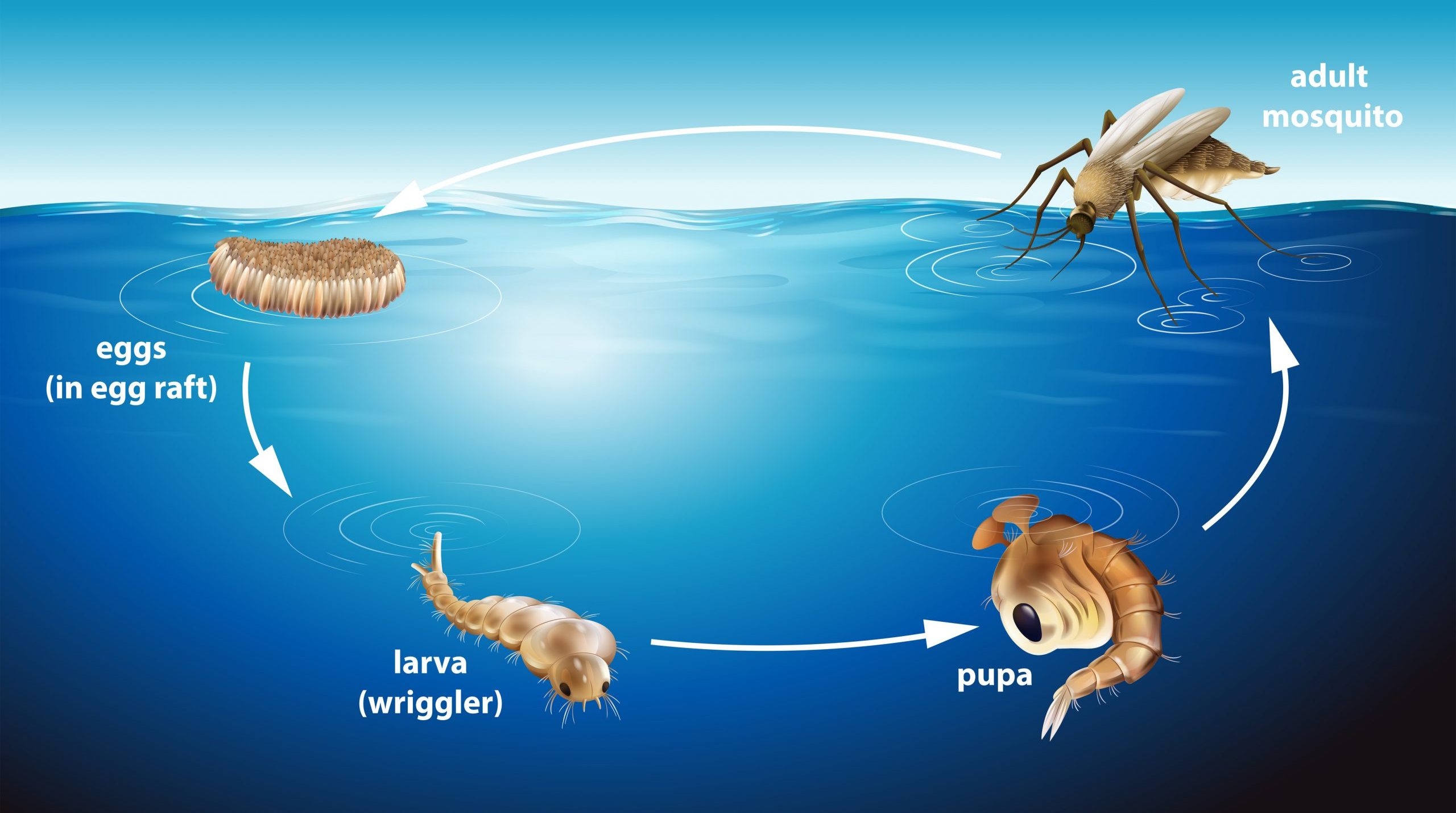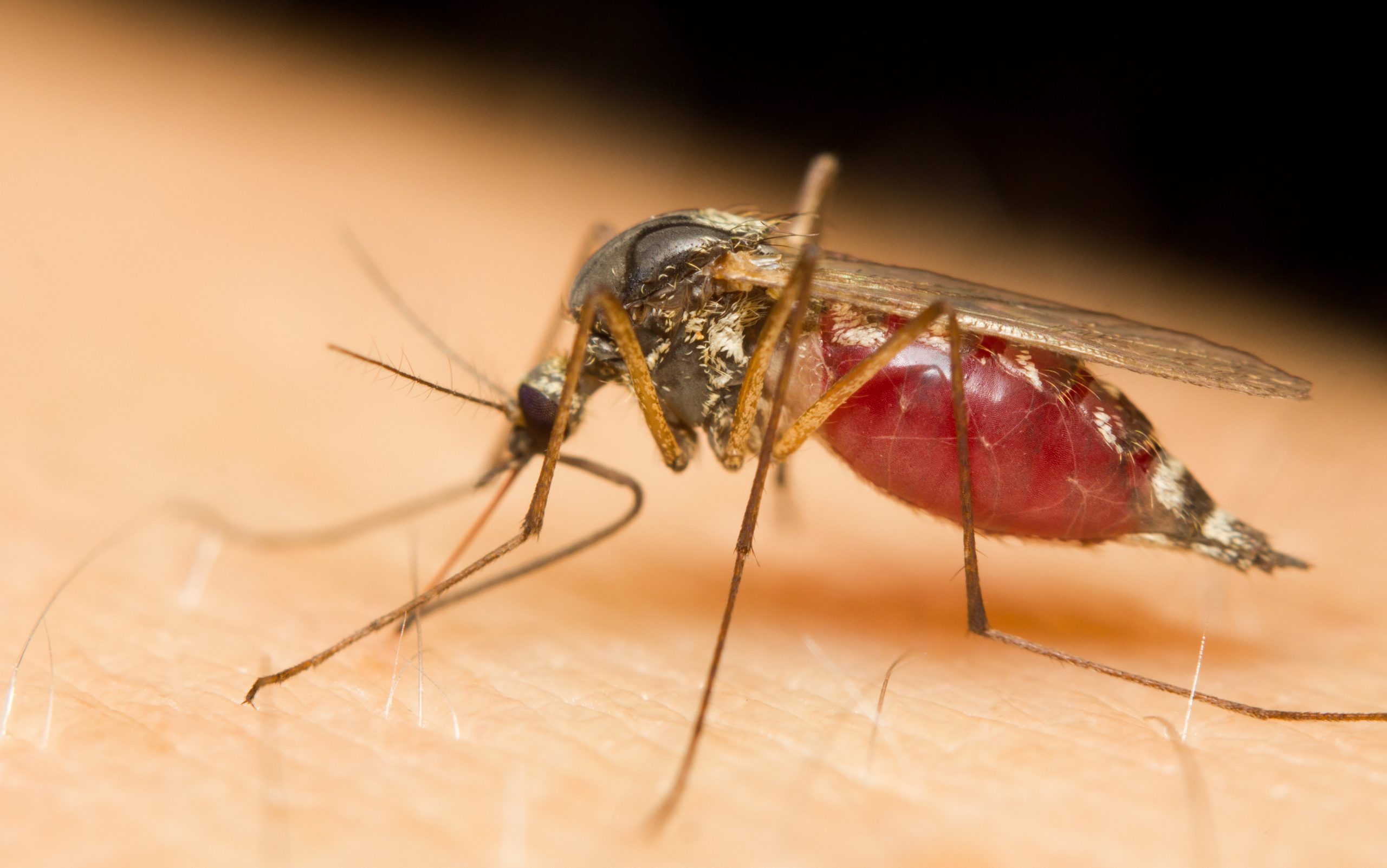Culex Mosquitoes
Identification: Culex mosquitoes are medium-sized mosquitoes known for their pale and dark scaling pattern on the wings. They typically have a blunt abdomen and often hold their bodies parallel to their resting surface.
Habitat: These mosquitoes prefer temperate to tropical regions and are particularly prevalent in urban and suburban areas. They breed in stagnant, polluted waters like ditches, storm drains, old tires, and bird baths.
Diseases: Culex mosquitoes are primary vectors for West Nile, St. Louis, and Japanese encephalitis. They can also transmit lymphatic filariasis and avian malaria.
Interesting Fact: Unlike many other species, Culex mosquitoes tend to feed primarily during the evening and overnight hours.
Anopheles Mosquitoes
Identification: Anopheles mosquitoes are recognized by their long palpi (sensory organs) and spotted wings. When at rest, they position themselves at a 45-degree angle relative to the surface.
Habitat: They inhabit various environments but are particularly common in humid regions and near freshwater sources. Their breeding habitats often include shallow water bodies, such as marshes, rice fields, and small puddles.
Diseases: Anopheles mosquitoes are notorious for being the primary vectors of malaria, a disease that affects millions worldwide. Some species within this genus can also transmit lymphatic filariasis and the O'nyong'nyong virus.
Interesting Fact: Only female Anopheles mosquitoes transmit malaria. They require blood meals to develop their eggs, and in the process, they might ingest and later transmit the malaria parasite to other hosts.
Aedes Mosquitoes
Identification: Aedes mosquitoes are easily distinguishable due to their unique black and white striped pattern on their body and legs. They have a pointed abdomen and are usually quite aggressive biters.
Habitat: These mosquitoes favor tropical, subtropical, and temperate zones. They typically lay eggs in clean, stagnant water sources, including flower pots, old tires, and containers. They're known to breed even in small amounts of water.
Diseases: Aedes mosquitoes are vectors for several significant diseases, including Zika virus, dengue fever, chikungunya, and yellow fever. They can also transmit the Mayaro and Rift Valley fever viruses.
Interesting Fact: Aedes mosquitoes are day biters, with peaks during early morning and late afternoon. Their biting habits and ability to transmit various diseases make them especially concerning for public health.


